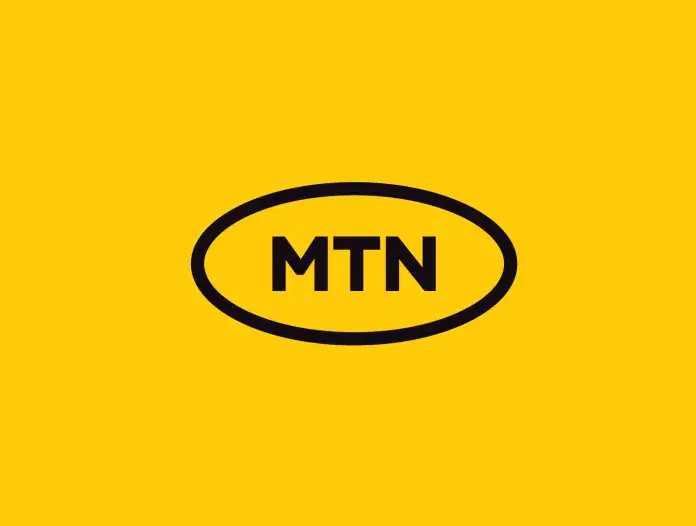Copyright ghanamma

MTN Ghana delivered a 45.9 percent surge in profit after tax to GH¢5.5 billion for the first nine months of 2025, powered by explosive data revenue growth and expanding mobile money adoption that’s transforming Ghana’s largest telecommunications operator into a digital services powerhouse. The financial results released Wednesday show service revenue climbing 36.3 percent year-on-year to GH¢17.3 billion, while earnings before interest, tax, depreciation and amortization rose 41.6 percent to GH¢10.2 billion, achieving a margin of 58.4 percent. That margin improvement of 2.2 percentage points signals MTN is squeezing more profitability from each cedi of revenue, a crucial metric as the telco pivots from traditional voice services toward data and fintech offerings. What stands out in these numbers is how completely data services now dominate MTN’s business model. Data revenue surged 46.8 percent to GH¢9.3 billion, accounting for 53.6 percent of total service revenue, marking the first time in company history that data alone contributed more than half of all revenue. That milestone reflects fundamental shifts in how Ghanaians use mobile networks, moving beyond basic calls and texts to video streaming, social media, mobile banking, and digital entertainment. Active data subscribers increased 11.4 percent to 18.9 million, meaning roughly two-thirds of MTN’s 30.5 million total subscribers now actively consume data services. The company deployed GH¢3.3 billion in capital expenditure excluding leases to expand coverage, improve network quality, and upgrade IT systems, achieving 98.9 percent 4G population coverage nationwide. That near-universal 4G availability creates infrastructure foundation for delivering faster speeds and more sophisticated services. Mobile Money’s Growing Footprint Mobile money revenue increased 39.2 percent to GH¢4.3 billion, supported by 17.7 million active users, a 4.1 percent increase reflecting MTN’s growing role in Ghana’s financial inclusion drive. The MoMo platform has evolved from simple person-to-person transfers into a comprehensive financial services ecosystem encompassing digital payments, lending services, merchant transactions, and cross-border remittances. Voice revenue, while growing more modestly at 9.3 percent to GH¢2.9 billion, demonstrates the legacy business isn’t disappearing but clearly represents declining importance relative to data and fintech. Digital entertainment services more than doubled to GH¢324.4 million, driven by consumer appetite for streaming video, gaming, and digital content, categories that barely existed in MTN’s revenue mix just a few years ago. CEO Stephen Blewett attributed the strong performance to consistent execution of the company’s commercial strategy and improvements in the macroeconomic environment. The results were driven by subscriber growth and sustained capital expenditure, supported by better operational conditions that strengthened performance across key business lines, he stated. MTN’s total subscriber base grew 6.4 percent to 30.5 million, adding roughly 1.8 million customers over the period. While that growth rate appears modest compared to revenue surges, it reflects market maturity in Ghana where mobile penetration already exceeds 100 percent when accounting for multiple SIM card ownership. The real growth opportunity lies in increasing revenue per user through data consumption and mobile money transactions rather than simply adding subscribers. Economic Contribution and Tax Payments The company paid GH¢7.3 billion in direct and indirect taxes during the period, up from GH¢6.1 billion in 2024, reinforcing its role as major contributor to government revenue. Additionally, MTN contributed GH¢1.2 billion in fees and levies to government agencies, bringing total fiscal contributions to GH¢8.5 billion. Those payments represent significant portions of Ghana’s telecommunications sector tax revenue, highlighting MTN’s economic importance beyond its commercial operations. Total capital expenditure reached GH¢4.6 billion including lease obligations, demonstrating MTN’s commitment to long-term infrastructure development despite operating in an economy still grappling with inflation and currency pressures. That investment level positions the company to capitalize on growing data demand while maintaining service quality that differentiates it from competitors. MTN achieved 57.3 percent increase in data traffic year-on-year, indicating subscribers aren’t just adopting data services but consuming dramatically more content. That traffic growth validates network capacity investments and suggests headroom for continued revenue expansion as usage patterns mature. Social Impact and Community Development Through the MTN Ghana Foundation, the company launched several initiatives including construction of a digital resource centre at the University for Development Studies in Tamale expected to train over 30,000 students in artificial intelligence, robotics, and Internet of Things technologies. The Foundation also trained 160 small businesses in fintech and accounting principles and supported over 4,000 learners through its Digital Skills Academy. These corporate social responsibility programs position MTN as contributor to Ghana’s digital transformation beyond commercial service provision. By training students and entrepreneurs in emerging technologies, the initiatives create potential future customers while addressing skills gaps that could constrain digital economy growth. Blewett noted that MTN’s approval from the National Communications Authority to harmonize its spectrum licenses would improve service quality and support Ghana’s digital transformation agenda. This milestone will enhance network performance and strengthen our ability to deliver innovative services nationwide, he said. Spectrum harmonization allows more efficient use of radio frequencies, potentially improving network speeds and capacity without requiring additional physical infrastructure. For MTN, that regulatory approval removes constraints that might otherwise limit its ability to meet surging data demand as customer usage patterns continue evolving. Strategic Priorities and Future Outlook Looking ahead, MTN remains optimistic about the final quarter of 2025, projecting service revenue growth in the mid-to-upper thirties percentage range and EBITDA margins in the mid-fifty percent range. That guidance suggests management expects momentum to continue despite seasonal variations and competitive pressures. The company reaffirmed commitment to stakeholder collaboration, cost efficiency, and customer satisfaction, emphasizing plans to leverage artificial intelligence tools to enhance customer engagement. Adoption of advanced AI tools in customer value management initiatives will be a priority to improve satisfaction and engagement, with continued scaling of group platforms including ongoing development of the myMTN and MoMo apps by adding innovative services to meet customers’ changing needs. MTN plans to keep introducing advanced features to improve security and enable smooth transactions, strategically investing in areas with highest demand, especially in data and home connectivity services, aiming to capitalize on growing market opportunities. That focus on data and home connectivity reflects recognition that fixed wireless access and home broadband represent next growth frontier as Ghanaians seek alternatives to traditional fixed-line internet. The company’s Ambition 2025 strategy focuses on growth, efficiency, and innovation, positioning MTN as Ghana’s leading digital solutions provider. Whether that ambition translates into sustained competitive advantage depends on execution amid intensifying competition from rivals also investing heavily in data infrastructure and mobile money services. Challenges remain despite strong results. Inflationary pressures continue affecting operational costs, regulatory burdens including sector-specific taxes add financial strain, and currency volatility creates uncertainty for a business dependent on imported equipment denominated in foreign currencies. However, expanding margins signal MTN is managing these challenges effectively while capturing growth in high-value segments. The company’s performance contrasts sharply with broader economic headwinds affecting Ghana, suggesting telecommunications and digital services represent sectors showing resilience and growth potential even during difficult macroeconomic periods. For investors, the combination of 46 percent profit growth, expanding margins, strong cash generation, and clear strategic direction presents a compelling narrative. For Ghana’s digital economy, MTN’s continued infrastructure investment and service innovation accelerate transformation toward digital-first society where mobile connectivity enables education, commerce, financial services, and entertainment. The 98.9 percent 4G coverage achievement means nearly all Ghanaians can theoretically access high-speed internet, though affordability and device availability remain barriers for some segments. As MTN marks these strong results, the telecommunications landscape continues evolving with potential 5G deployments, satellite internet competition, and regulatory changes that could reshape competitive dynamics. The company’s ability to maintain growth momentum while adapting to these shifts will determine whether 2025’s performance represents peak achievement or foundation for sustained leadership in Ghana’s digital transformation journey.



